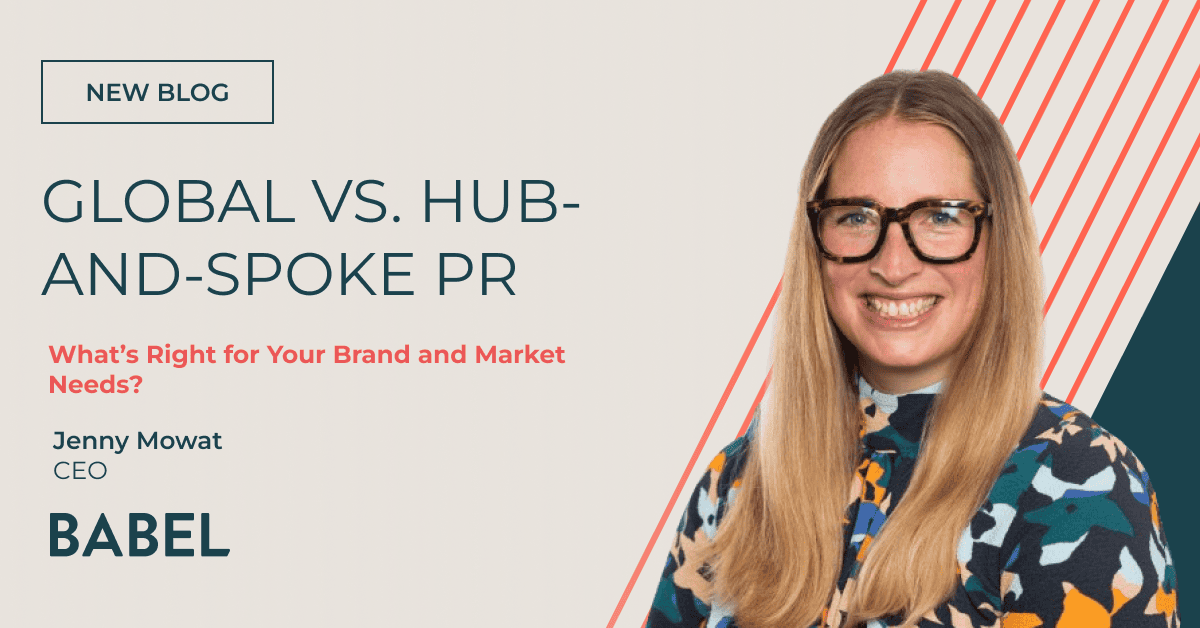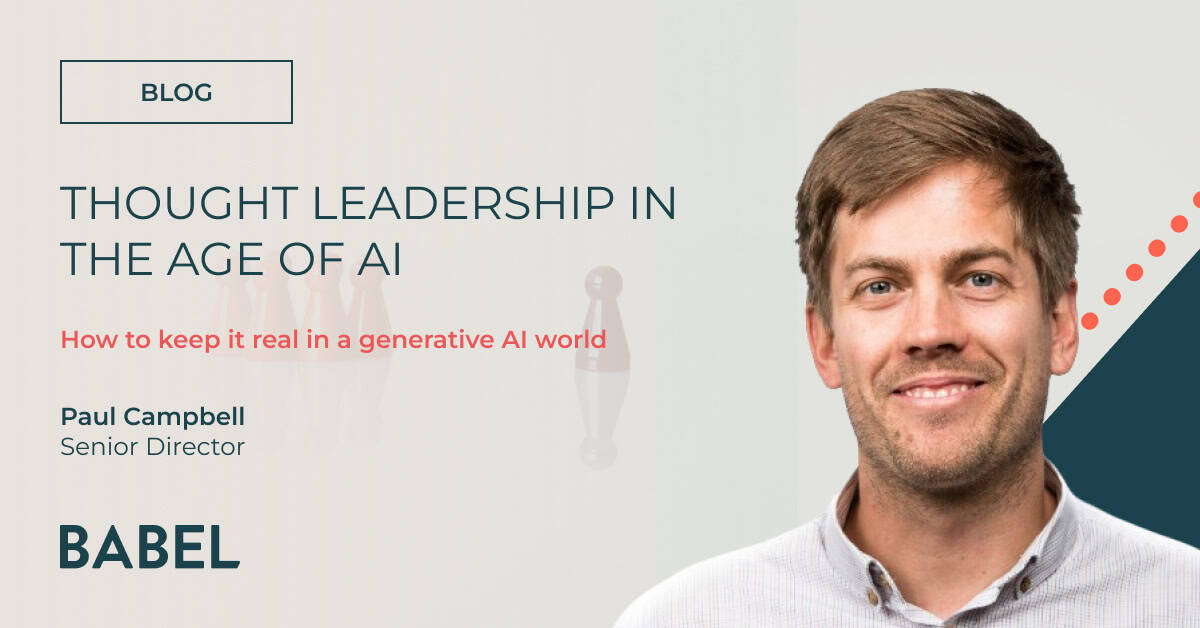
Global vs. Hub-and-Spoke PR: What’s Right for Your Brand and Market Needs?
It’s the big question when managing international campaigns: how can we do more with less?
Or, when applied to our industry, how can tech brands expand into new markets, particularly the US or Europe, with limited budgets, time and resources?
Honestly, we love this question (and we’ve become pretty good at answering it) – and in our experience, it’s often accompanied by another: Do we need a separate local PR agency for each region, or can we manage international campaigns more centrally?
Now, that’s a big question and it’s far from a simple yes or no answer. Each brand will have its own unique context that will inform the answer. But the first thing to do is to examine the differences between a global vs. hub-and-spoke approach and the different opportunities offered by each that might influence your decision.
The One-Stop-Shop – one team, multiple markets
Working with a single agency partner has some obvious appeal. Providing ease of management brand-side, it offers one point of contact and a centralised basis for your global marketing strategy and key messages – an effective puppeteer model, if you like.
But, to have that multi-market reach, you’ll have to deal with large agencies. Sure, there are lots of benefits to this, most of them have long-lasting heritage and bags of experience, but there are also definite downsides to this approach.
Due to their size, many operate under necessary but rigid structures, with complex hierarchies, huge teams and sometimes cumbersome internal politics. While they have offices in multiple markets (a potential benefit for brands looking to expand and retract their global footprint as needed) the teams may vary in quality and industry-relevant experience – both crucial when it comes to highly-specialised tech sectors.
The Bespoke Hub-and-Spoke – where agility meets local expertise
At first look, the hub-and-spoke agency model is not so dissimilar. You keep your preferred PR partner as the strategic hub and your one point of contact but beyond that, it’s a different ball game entirely. Your hub agency harnesses the power of multiple independent agency partners and freelancer networks within your key markets, as spokes on your behalf.
No market is the same, each will come with its own nuances that a local agency partner will be best placed to navigate. You might require a more manufacturing and deep tech focused agency in Germany, with more retail focus in France, and hyper-scale business experience for the UK market. Being able to match the agency expertise to your market need could bring significant advantage to comms.
Whilst some might argue this carries a little less global clout, the model does allow brands to hone in on the key markets to better effect – ensuring that consistency of brand voice, and localisation, that is so key to today’s B2B buyers.
Let’s break down the key benefits for a hub-and-spoke global communications model:
- Centralised strategy: A leading agency, like Babel, ensures consistent messaging, reporting, and global alignment – crucially taking the management headache away from internal marketing/comms teams.
- Local insight: Spoke agencies bring boots-on-the-ground media knowledge, contacts and cultural relevance, especially valuable in complex or fast-moving markets.
- Flexibility: This is a key one. You’re not locked into a complex global structure; you can scale up or down by region based on campaign goals, budget, or required impact.
- Cost-efficiency: Hub-and-spoke efficiency means you cut your coat according to your cloth – not wasting precious resources on hammering home the wrong message in the wrong region or media outlet, and retaining the nimbleness of independent agencies to push and pull your campaign according to the results.
So, which should you choose?
This blog isn’t to put shade on the global shops, it’s to outline all the different options, as one size doesn’t fit all. What’s right for each brand could come down to your personal context such as your wider brand goals, resources and ultimately, your preference.
If your resources are limitless, your integrated requirement is complex and your message is broad, then a global agency model could be for you.
And if your goal is to have tighter control on your brand message, have a simplified comms line through one agency hub, and ensure your brand relevance in your key markets, hub-and-spoke is the one for you. It can empower brands with global swagger, while engineering a tightly focused local market strategy and impact.
Written by Jenny Mowat
CEO





